
Google launches new Hangouts-inspired assistance service, Helpouts
As promised back in August, Google launches Helpouts, an online video help service based on the idea of Hangouts. Or as Google puts it, "real help from real people in real time". There are numerous online help repositories -- Yahoo Answers et al -- but the thinking behind Helpouts is to make things live and instantaneous.
If you have a sudden yearning to make a soufflé, forget hunting through score of recipes sites for the best method, get someone to show you step by step.

Kindle First provides early access to unreleased books
When it comes to reading, I use a Kindle PaperWhite. I hate paper books with a passion -- they take up space and are obsolete. The Kindle is wonderful because it allows me to easily bookmark pages, look up definitions, and scan the book for certain words with the x-ray feature. An Amazon Prime membership enhances the Kindle experience by letting the user "borrow" a book from among 350,000 choices.
Today, Amazon announces Kindle First , a new program that gets unreleased books into the hands of readers before the official release date. This is not just a few days either, it can be up to a month early. This will give Kindle owners extreme bragging-rights in the book-club community. I can already picture pretentious people sitting in Starbucks saying "oh, that book is so last month".

Runtastic aims to make exercise more fun with Story Running
Running can, at times, get rather boring (especially treadmill running). I’m a huge fan of the Zombies Run app which helps keep runners like me going for longer by providing an unfolding story in-between your music tracks, and also offers numerous modes (like Radio, Race and Supply) for when you’ve listened to all of the available chapters.
A bit of variety is always welcome though, and Runtastic is muscling in on Zombies Run territory with what it’s calling Story Running.

You are dead! Papa Sangre II arrives in time to scare up Halloween [Review]
I like unusual games, and the original Papa Sangre really appealed to me. If you’ve never heard of it, it’s essentially a sound-only game for iOS in which you listen for 3D audio clues as to where you are and the direction you need to be going in. The follow up, The Nightjar (featuring the voice of Benedict Cumberbatch), added more of a story to the proceedings, and now in time for Halloween, Papa Sangre returns.
I was one of the beta testers for the new game, and I’m pleased to report Papa Sangre II is a massive improvement over the original. The rebuilt binaural processing Papa Engine does an amazing job of recreating a 3D soundscape in your mind and the addition of actor Sean Bean’s vocal talents, a choice of control systems and some inspired levels -- one moment you’re escaping a burning house, the next shooting ducks in the dark -- combine to create a very rewarding experience.

Technology companies shouldn't neglect the importance of silver surfers
Silver surfers are a more important market than generations X and Y yet are often ignored by technology companies according to new research by Gartner. With many markets now having an aging population, technology designers and marketers need to refocus on the opportunities offered by older users.
Speaking at Gartner Symposium/ITxpo on Australia's Gold Coast, vice president and Gartner Fellow David Furlonger says, "In recent years, technology decision makers have focused their work largely on the perceived wants and needs of younger demographics. They have created and sold products targeted explicitly at an already-saturated market of financially poor 'digital natives' in Generations X and Y. This emphasis on the young is unsurprising, since many technologists are themselves part of these younger age groups. However, it is a very serious mistake, because it neglects the most promising technology market demographic of all: the affluent, increasingly technologically sophisticated older generation we are calling the 'silver surfers'".

What to expect from the Gigabit Explorer Challenge
Gigabit Internet has arrived, and it's time to figure out just what we should do with it. A gigabit is a billion bits per second. Average Internet speeds today range around 5 million bits per second. It's a bit of a speed mismatch, the cheetah vs. the caterpillar -- and the cheetah gets a head start. At these speeds, the "what" and "how" to use it far outreach the way we use the Internet today.
Forget the speed, for a moment. Not to downplay the value of instantaneously downloading a season of The Wire but ultrafast Internet is about more than speed. Innovation grew in the space where 50 kbps Internet was once seen as lightning fast -- a space with email, file transfers and remote logins. What modernization will emerge from this new space?
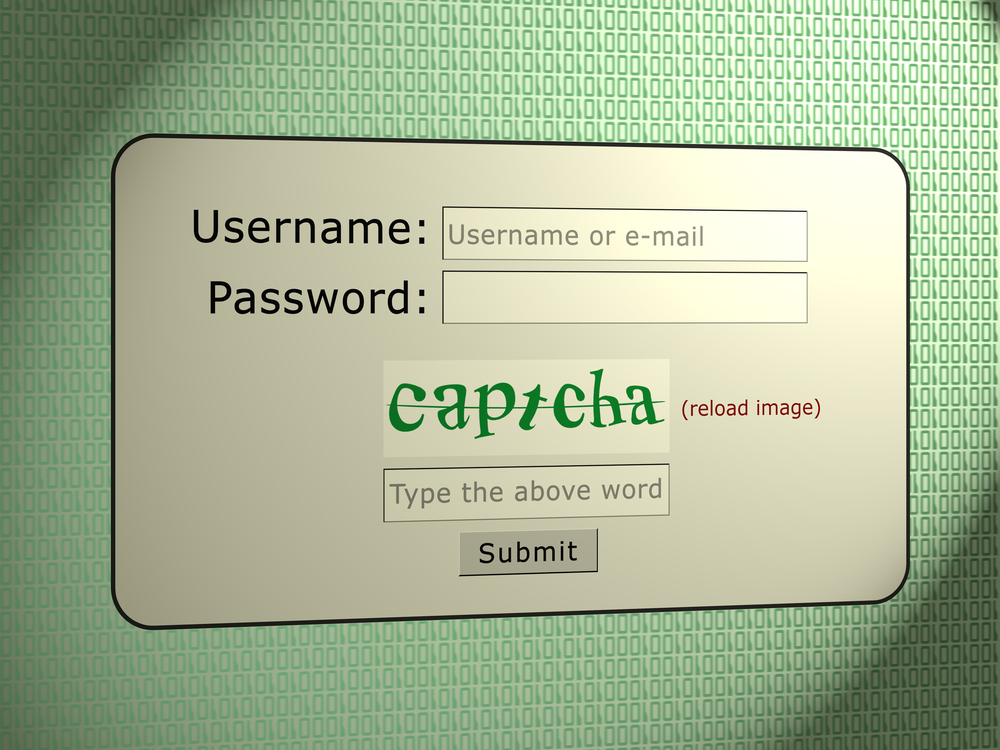
AI firm Vicarious cracks CAPTCHA codes
CAPTCHA are a thorn in the side of web users. Those almost indecipherable string of letters and numbers that are meant to help websites determine that you are a human rather than a spambot often cause more frustration for users than anything else, and they have now been cracked.
Vicarious, a California-based AI team, reveals that it has been able to develop algorithms that can successfully solve CAPTCHAs from the likes of Google, Yahoo and PayPal.
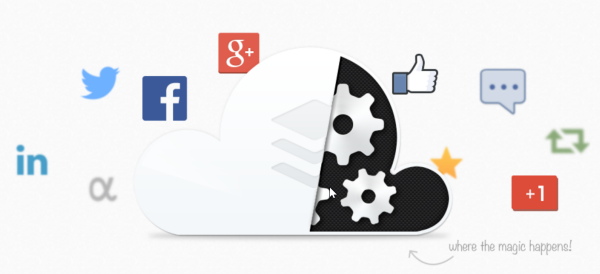
[Update -- fixed!] Social sharing service Buffer is hacked -- temporarily takes itself offline
The latest web service to fall victim to a hack attack is Buffer, the social sharing tool that can be used to schedule posts to multiple social networks. Although it looks as though customers' passwords and billing details are safe, the problem was noticed late Saturday morning when spam type posts started to appear on users' Facebook and Twitter accounts. The Buffer team has been quick to take action and notified users via Facebook.
Buffer co-founder Leo Widrich posted saying "hey everyone! We greatly apologize for this big mess we've created. Buffer has been hacked." Shortly after this Facebook postings were disabled in a bid to stop the spread of spam and Buffer assured users that "We're continuing to work on this and trying to investigate and fix".
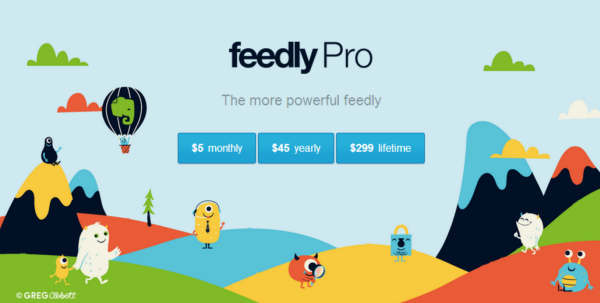
RSS reader Feedly pushes preposterous pricing for Pro package -- $299!
It is now four months since Google Reader shut up shop. At the time, Google cited a declining interest in the product and many people were quick to suggest that RSS was a technology past its sell-by date used by very few. But this seems to be contradicted by the staggering number of Google Reader alternatives that popped up to cater for the large numbers of RSS fans who bemoaned the loss of Google's tool.
One tool that quickly gained a large following is Feedly. In fact, so many people switched to Feedly that servers were unable to cope, and the service briefly collapsed under the weight of its own popularity. This was a temporary blip and things were soon back up and running. I was one of thousands of people who made the jump -- in fact I had a period of crossover using Feedly and Google Reader simultaneously to help ease the transition -- and things went fairly well.

Three in four UK homes now has access to superfast broadband
UK telecoms regulator Ofcom's annual Infrastructure Report update published today shows that 73 percent of premises are now able to receive superfast broadband, up from 65 percent last year.
Ofcom defines "superfast" as networks delivering download speeds of at least 30 Mbit/s, typically delivered using fiber optic cabling. Around 22 percent of connections now fall into this category with some 4.8 million consumers now having superfast connections, more than doubling last year's 2.1 million figure.

Google breaks its promise and experiments with banner ads
Google's ad-supported model is one that we're now all familiar with. Spend any amount of time online and, unless you have installed some form of ad-blocker, you'll see text advertisements littering numerous websites you visit, including in your search results.
Sponsored search results are nothing new, but Google is now experimenting with large banner ads which show up when certain searches are performed.

Yahoo acquires image recognition startup LookFlow -- Flickr to benefit
One of Yahoo's most popular and successful products is Flickr. Adding to its list of acquisitions, the company is now taking LookFlow under its wing.
This California-based startup, which specializes in image recognition technology, is joining forces with Yahoo to "build a new deep learning group". It is likely that we'll see image based searching added to Flickr in the near future.
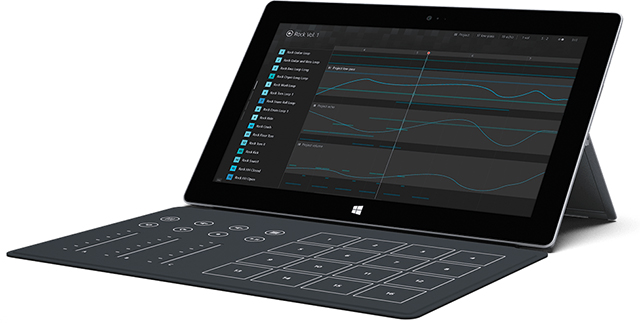
Microsoft targets musicians with the innovative Surface Music Kit
Microsoft is hoping to appeal to serious musicians and remixers with a new add-on for its tablet range. The Surface Music Kit is a backlit cover (called a Blade) that plugs into the Surface keyboard port and replicates the sort of hardware buttons typically used by a music producer or performer.
When you connect the Music Cover, it will install the companion app automatically, providing you with access to all of the building blocks of a song -- templates, drums, bass, keyboard, vocals, and so on. You can use it to create new music but it’s particularly well suited to remixes and mashups.

Torrent site isoHunt closes early to foil backup plan
In a bid to foil plans to create a backup of the site, isoHunt closes its doors ahead of its planned shutdown. On 16 October, isoHunt founder Gary Fung struck a deal with the MPAA, bringing to an end a series of court battles that have waged for several years.
Fung agreed to pay damages of $110 million and to shut down isoHunt -- along with TorrentBox, www.podtropolis.com and www.ed2k-it.com -- within seven days.
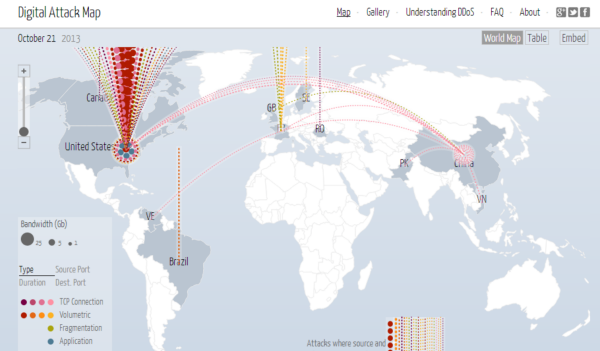
Google Ideas announces tools to combat online censorship #FreedomOfSpeech
Access to the internet and the ease of communication it affords us is something we now take for granted. In a sense this is how it should be -- access to the internet really should be seen as a right. But in all too many countries around the world, citizens find that government and dictatorships block or restrict access to the internet, or close down sites that speak out against regimes. This is something Google is keen to be involved in stopping, and this week launched a series of tools to help in the fight.
It's an idea which echoes of the Alliance for Affordable Internet campaign to make internet access cheaper, and Internet.org's dream of connecting the world, but there is a rather more political edge to it.
